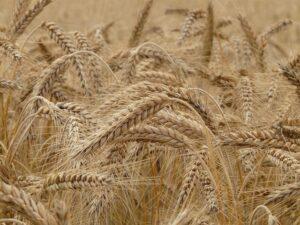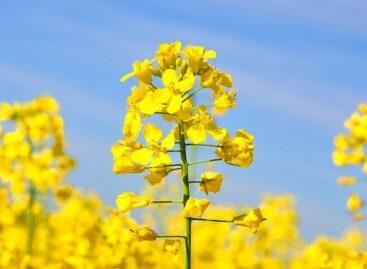MKi: some primitive grains have an outstanding content value
Some ancient grains have an outstanding nutritional value and are easier to tolerate by food-sensitive consumers – the Ecological Agricultural Research Institute (ÖMKi) emphasized in Monday’s announcement, in which they draw attention to the value of domestically produced, organically harvested grains on the occasion of World Bread Day and World Food Day.

(Photo: Pixabay)
Although bread made from wheat is one of the foundations of our diet, unfortunately, more and more people are experiencing problems when consuming it – reads the statement sent to the research institute MTI. According to their explanation, in addition to processed foods, the causes must be sought primarily among the proteins found in wheat, to which the negative reactions (celiac disease, i.e. wheat allergy, and non-celiac gluten sensitivity) can be traced back. That is why more and more scientific research is dealing with the differences between the allergenic and intolerance-causing effects of different types of wheat. As they write, the latest research results confirm that some types of wheat have outstanding nutritional value and are easier to tolerate by food sensitive consumers. According to a recent publication published in the journal Nature, in which five different – ancient and modern – types of wheat were examined, at least 2,540 proteins can be identified in each type of wheat and there are significant differences between the possible allergic effects of the proteins. The amount of several wheat proteins that play an important role is primarily determined by genetics and not by environmental factors, which may enable wheat producers and processors to select more ideal, less allergenic species and varieties in the future.
The results also confirmed that, in particular, alakor contains smaller amounts of potential allergens than ordinary wheat
In the announcement, they point out that ÖMKi, where they have been dealing with ancient grains for more than eight years, has created a farmer-miller-baker database , the purpose of which is, so that producers and other players in the product line can find each other more easily, and thus the healthy organic wheat flour, free of chemical residues, can reach as many bakeries and households as possible. In addition, since 2012, ÖMKi has been conducting so-called on-farm experiments in order to ensure that Hungarian farmers can grow high-yielding grains that are best adapted to their area in ecological quality. “Unlike spelt, the spelt and alakor primeval wheat species are hardly known, even though they rival it in terms of several properties, and often even surpass it. Scientific research supports that they have a favorable fatty acid, starch and protein composition, digestibility, antioxidant compounds and minerals their content makes them an exceptionally healthy food. During agricultural production, their advantage is their good disease resistance, adaptability, vitality and weed suppressing ability,” explained the results. According to the announcement, as an important step in the research work, in 2020 they announced the launch of a new national small-plot organic peach variety test network, the results of which were recently published by the experts.
Today, a person in Hungary consumes an average of 44.5 kilograms of bread per year
In Central Hungary, they consume less than this, 36 kilograms per year, while in the Southern Great Plains, they consume much more, 58 kilograms. For this reason alone, the quality of bread is an extremely important public health issue – they wrote. At its 2001 congress, the Swiss-based World Association of Bakers decided that October 16 would be World Bread Day. The purpose of World Food Day is to mobilize governments and the public to address the food problems affecting the majority of humanity. In 1979, the Food and Agriculture Organization of the United Nations, the FAO conference in Rome declared October 16 as World Food Day, based on a Hungarian resolution proposal. World Food Day is celebrated every year on the occasion of the anniversary of the founding of the FAO.
MTI
Related news
ENAR data reconciliation for cattle, sheep and goat, pig and poultry farmers is underway until the end of March
🎧 Hallgasd a cikket: Lejátszás Szünet Folytatás Leállítás Nyelv: Auto…
Read more >








